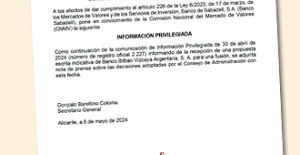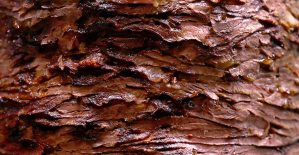It is an issue that divides politicians, but also agricultural professionals. Is the introduction of “European floor prices” in the sectors really a good idea? For Emmanuel Macron, present at the Agricultural Show on Saturday, these prices “will make it possible to protect agricultural income and not give in to all the most predatory practices which today are sacrificing our farmers and their income”.
Shortly after this announcement, La France insoumise was quick to tip the hat to its party, which had already tabled a similar proposal in the National Assembly. François Ruffin, deputy for the Somme, specifies on X (ex-Twitter) that “for six years, we have been demanding it from the National Assembly. Very alone, at first, then winning over the minds, the Macronists and the right who resisted. This is the big choice today, for everything and everywhere, medicine, housing, electricity, let the market take its course or regulate it, regulate it, hinder it? For Jean-Luc Mélenchon, “the struggle pays off. She keeps. We must block the profit margins of the agri-food industry.”
But for the Minister of Agriculture, invited this Sunday morning on CNews, the government's proposal differs from that of LFI: "LFI's proposal was: floor price, fixing of margins, price control by the government, not exactly what we said yesterday. “LFI proposed, if I remember correctly, the fact that at the start of the year, the government decides on a fixed price, for example the price of milk is 1.20 euros per liter (for consumers) , that’s something of the Soviet system.” Olivia Grégoire, the Minister of Consumer Affairs, also denounced measures last year reminiscent of “Cuba or the Soviet Union with the successes we know of them”. “You do that in 2022, at the start of the year you don’t have the war in Ukraine, you say that the price is 1.20 euros and then we don’t take inflationary issues into account,” points out Marc Fesneau.
The government thus wishes to “work on something within our borders [...] and bring it up to the European level”. This floor price “must be based on the production costs” of producers, according to the Minister of Agriculture. “It is not because the fight is difficult that it should not be fought,” adds Marc Fesneau, in a confident tone. But for the other parties, in particular the right, this fight should be forgotten, if we are to believe the president of the Republicans, Bruno Retailleau: “It is a very bad idea promoted in particular by LFI [which has] two traps: it will be a universal agricultural minimum income, a socialist idea, and the floor price will become a market price in Egalim (the law which governs producers' income, Editor's note). In the diversity of regions and farms, the gaps will widen. We walk on the head !"
An observation shared by other specialists, such as Christian Gollier, director of Toulouse School of Economics: “The floor price is above all a boon for large farmers, especially if it is estimated at the average cost of small farms. Ineffective productivist policy par excellence. How can the left support this?” For Philippe Goetzmann, mass distribution expert, “a floor price guarantees a price, a piece of paper. It has never guaranteed a volume, which is what makes the turnover: “Price times volume”. A floor price when we are not competitive is the guarantee of a fall in volumes, so the choice is [we will achieve] the end of agriculture or the closing of borders.”
Others wonder about the calculation of this floor price. “The risk is that there are as many floor prices as there are types of breeding. We see this with the beef sectors. Within the framework of the Egalim law, contracting with companies is difficult because the sectors have not agreed on the criteria for production costs,” reports Anne-Catherine Loisier, centrist senator from Côte d’Or, to Le Parisien. . For Sébastien Poutreau, cereal grower and administrator of the FNSEA, “it starts with a good intention but it will quickly become window dressing. How do we set this floor price? Between a milk producer who farms in the mountains and another in the plains, the costs are not the same. Which one do we choose?” The question is simple to resolve for Anne-Catherine Loisier: “If the administered prices are too high compared to international ones, we will no longer export. And imports will increase.

 Body warns BBVA that "the Government has the last word" in the takeover bid for Sabadell
Body warns BBVA that "the Government has the last word" in the takeover bid for Sabadell Finding yourself face to face with a man or a bear? The debate that shakes up social networks
Finding yourself face to face with a man or a bear? The debate that shakes up social networks Sabadell rejects the merger with BBVA and will fight to remain alone
Sabadell rejects the merger with BBVA and will fight to remain alone In Germany, the far left wants to cap the price of “doner kebabs”
In Germany, the far left wants to cap the price of “doner kebabs” The presence of blood in the urine, a warning sign of bladder cancer
The presence of blood in the urine, a warning sign of bladder cancer A baby whose mother smoked during pregnancy will age more quickly
A baby whose mother smoked during pregnancy will age more quickly The euro zone economy grows in April at its best pace in almost a year but inflationary pressure increases
The euro zone economy grows in April at its best pace in almost a year but inflationary pressure increases Children born thanks to PMA do not have more cancers than others
Children born thanks to PMA do not have more cancers than others Argentina: the street once again raises its voice against President Javier Milei
Argentina: the street once again raises its voice against President Javier Milei Spain: BBVA bank announces a hostile takeover bid for its competitor Sabadell
Spain: BBVA bank announces a hostile takeover bid for its competitor Sabadell New black series for Boeing: eleven injured after a plane went off the runway in Dakar
New black series for Boeing: eleven injured after a plane went off the runway in Dakar “The prices are astronomical”: to enjoy the Olympics with family, Sabrina spent... 8,000 euros
“The prices are astronomical”: to enjoy the Olympics with family, Sabrina spent... 8,000 euros Berry affair: Jeane Manson victim of a heart problem after a court hearing
Berry affair: Jeane Manson victim of a heart problem after a court hearing Venice Film Festival: Isabelle Huppert will chair the jury of the 81st festival
Venice Film Festival: Isabelle Huppert will chair the jury of the 81st festival Louvre: Delacroix’s “Liberty Leading the People” target of the Riposte Alimentaire collective
Louvre: Delacroix’s “Liberty Leading the People” target of the Riposte Alimentaire collective The Coubertin Spirit, Eternal Memory, Planet of the Apes... Films to watch this week
The Coubertin Spirit, Eternal Memory, Planet of the Apes... Films to watch this week Omoda 7, another Chinese car that could be manufactured in Spain
Omoda 7, another Chinese car that could be manufactured in Spain BYD chooses CA Auto Bank as financial partner in Spain
BYD chooses CA Auto Bank as financial partner in Spain Tesla and Baidu sign key agreement to boost development of autonomous driving
Tesla and Baidu sign key agreement to boost development of autonomous driving Skoda Kodiaq 2024: a 'beast' plug-in hybrid SUV
Skoda Kodiaq 2024: a 'beast' plug-in hybrid SUV The home mortgage firm rises 3.8% in February and the average interest moderates to 3.33%
The home mortgage firm rises 3.8% in February and the average interest moderates to 3.33% This is how housing prices have changed in Spain in the last decade
This is how housing prices have changed in Spain in the last decade The home mortgage firm drops 10% in January and interest soars to 3.46%
The home mortgage firm drops 10% in January and interest soars to 3.46% The jewel of the Rocío de Nagüeles urbanization: a dream villa in Marbella
The jewel of the Rocío de Nagüeles urbanization: a dream villa in Marbella Institutions: senators want to restore the accumulation of mandates and put an end to the automatic presence of ex-presidents on the Constitutional Council
Institutions: senators want to restore the accumulation of mandates and put an end to the automatic presence of ex-presidents on the Constitutional Council Europeans: David Lisnard expresses his “essential and vital” support for François-Xavier Bellamy
Europeans: David Lisnard expresses his “essential and vital” support for François-Xavier Bellamy Facing Jordan Bardella, the popularity match turns to Gabriel Attal’s advantage
Facing Jordan Bardella, the popularity match turns to Gabriel Attal’s advantage Europeans: a senior official on the National Rally list
Europeans: a senior official on the National Rally list These French cities that will boycott the World Cup in Qatar
These French cities that will boycott the World Cup in Qatar Football: mysterious serial attacks on footballers in Malaysia
Football: mysterious serial attacks on footballers in Malaysia Paris 2024 Olympic Games: “a shame”, “level 0 of music”… The choice of JUL deeply regretted on social networks
Paris 2024 Olympic Games: “a shame”, “level 0 of music”… The choice of JUL deeply regretted on social networks Real Madrid-Bayern Munich: “I feel bad”, Manuel Neuer a fallen hero
Real Madrid-Bayern Munich: “I feel bad”, Manuel Neuer a fallen hero Mercato: Nacho should leave Real Madrid at the end of the season
Mercato: Nacho should leave Real Madrid at the end of the season


















